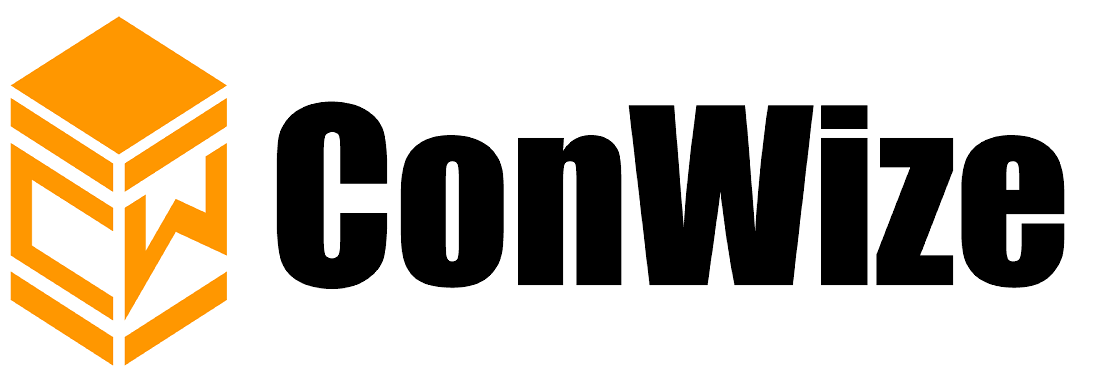What Is Construction Bidding Software?
building bidding software is a digital application that facilitates the bidding process for building projects. It enables contractors and subcontractors to generate, submit, and manage bids electronically, saving time and resources over traditional ways. Construction bidding software helps contractors and subcontractors organize and manage all of the information required to submit a bid, such as project requirements, blueprints, and other pertinent documents.
This centralized method reduces the need for manual operations like printing and sending bids, resulting in a more efficient and accurate bidding process. One of the most important characteristics of construction bidding software is its ability to automate operations like bid tracking, reminders, and notifications, which ensures that bids are filed on time and reduces the danger of missing deadlines.
Furthermore, many software solutions include integrations with other construction management tools, making it easy to move bid information to project management software if the bid is successful. Another key feature of building bidding software is its usability. With the advent of cloud-based solutions, bids can now be generated and filed from any location with an internet connection, making them perfect for contractors who frequently work on various job sites.
Construction bidding software frequently incorporates capabilities like cost estimation, bid comparison, and analytics to assist buyers in making informed decisions. These features provide useful insights into the bidding process, allowing contractors to discover areas for improvement and submit more accurate bids in the future.
What Are The Recent Trends In Construction Bidding Software?
In recent years, there has been a substantial growth in the use of technology to streamline and improve traditional construction processes. As a result, demand for building bidding software has skyrocketed. This specialist software is intended to make the bidding process easier, from generating bids to managing subcontractors and tracking project expenditures.
One of the most recent advances in building bidding software is the use of artificial intelligence (AI). AI-powered bidding software can assess historical data, project specs, and other factors to properly estimate project costs and deadlines. This can assist contractors in preparing more accurate and competitive bids, enhancing their chances of winning contracts. Another trend is the incorporation of mobile technology.
Contractors can use mobile bidding software to review and change bids in real time. This not only expedites the bidding process, but also enhances collaboration among contractors, subcontractors, and clients. Cloud-based solutions have also gained popularity in the construction industry.
These web-based bidding software systems enable remote access and cooperation, making it easier for contractors to manage bids from several projects at once. Additionally, using cloud-based solutions eliminates the requirement for on-premise servers and software, saving contractors time and money. In recent years, the building sector has placed a high focus on sustainability.
With that in mind, several construction bidding software solutions now include tools that allow contractors to track and manage green building supplies and certifications. This benefits not only the environment, but also clients that value sustainability in their initiatives. Finally, data analytics has become a critical component of construction bidding software.
Data analytics may help contractors understand their bidding history, success rates, and opportunities for growth. This information can help contractors make better judgments and enhance their bidding procedures, resulting in increased efficiency and profitability.
Benefits Of Using Construction Bidding Software
Construction bidding software is a crucial tool for any construction company aiming to automate and optimize the bidding process. With technological innovation, bidding software has become a game changer in the construction business, delivering several benefits to contractors, subcontractors, and clients alike.
we'll look at the main advantages of using construction bidding software and how it may help your firm expand.
1. Increased Efficiency And Accuracy: Using construction bidding software reduces the need to manually compile bids and computations, lowering the risk of human mistake. The software can quickly generate accurate cost estimates, minimizing the time and effort required for bidding. This increased efficiency results in more proposals submitted in a shorter period of time, enhancing your chances of winning jobs.
2. Cost-Effective Solution: Using traditional bidding procedures, producing bids may be a labor-intensive and time-consuming process, with considerable material and personnel expenditures. Bidding software provides easy access to historical data, standard costs, and automatic computations, resulting in a more cost-effective option for your firm.
3. Improved Communication And Collaboration: Construction bidding software frequently incorporates tools to facilitate communication and collaboration among team members, subcontractors, and clients. The platform supports real-time updates, document sharing, and messaging to keep everyone on the same page during the bidding process. This improved communication can help eliminate errors and delays, resulting in a more efficient bidding process.
4. Competitive Edge: Construction bidding software provides your company with a competitive advantage in the industry by allowing you to swiftly prepare precise and professional bids. It enables you to differentiate yourself from your competitors by demonstrating your company's efficiency and professionalism, enhancing your chances of winning additional projects.
5. Project Tracking And Analysis: Many construction bidding software packages provide project tracking and reporting functions, allowing you to track the status of your bids and assess their success rates. This information can help you find areas for improvement, make more informed bidding selections, and estimate future projects.
6. Time-Saving: One of the most major advantages of using building bidding software is the time savings. Bids can now be produced and submitted considerably faster than before thanks to automated processes and features. This frees up time for your team to focus on more important responsibilities like project management and client interactions.
Important Factors To Consider While Purchasing Construction Bidding Software?
In the construction industry, time and efficiency are extremely important. Construction bidding software has become a crucial tool for contractors and construction organizations looking to shorten the bidding process and increase their chances of winning projects. With so many options available on the market, it might be difficult to select the proper software. Here are some crucial considerations when selecting construction bidding software:
1. Bidding Skills: The software's bidding skills are the most important thing to examine. It should enable you to generate full bids that include correct pricing, material prices, and labor expenses. It should also be able to generate itemized bids that include any addendums or change requests.
2. User-Friendly Interface: The software's interface should be simple to use and understand. This is especially critical for contractors and estimators who may lack a strong technical background. Look for software that provides demo versions or free trials so you may try the interface before purchasing.
3. Customization: Each construction project is unique and requires its own set of reporting and bidding documentation. The program you purchase should provide customization possibilities to meet your individual requirements. This will allow you to personalize bids and reports to the needs of each project and client.
4. Integration: Construction bidding software should work easily with your existing systems, including accounting software, project management tools, and CRM systems. This will save you time and prevent errors by removing the need for manual data entry.
5. Collaboration: In a fast-paced industry like construction, teamwork is essential. Look for software that allows many users to work on bids at the same time while also providing real-time updates and communication capabilities. This will help you enhance efficiency and avoid delays or misinterpretation.
6. Data Security: Construction bidding software handles sensitive information like project expenses, client details, and vendor bids. It is critical to select software that prioritizes data protection and includes comprehensive security safeguards to safeguard your data.
7. Training And Support: Even the most user-friendly software may require some initial training before your staff can utilize it effectively. Look for software that provides training and assistance to help you and your team become familiar with the product. This ensures a seamless and successful execution.
What Are The Key Features To Look For In Construction Bidding Software?
Construction bidding software is an essential tool for contractors and construction organizations aiming to expedite the bidding process and improve their chances of winning projects. With so many options on the market, it can be difficult to evaluate which software is ideal for your needs.
To simplify your decision, these are the important elements you should look for in construction bidding software:
1. User-Friendly interface: One of the most crucial elements to look for in bidding software is the interface. A user-friendly and straightforward design will save you time and frustration while working with the software. Look for software that allows you to simply develop, manage, and track bids without requiring any technical knowledge.
2. Customized Templates: Each construction project is unique, and your bidding software should allow you to generate customized bidding templates to meet your specific requirements. This saves you time and effort because you won't have to generate bids from start each time.
3. Bid Tracking And Management: Keeping track of your bids is critical to the profitability of your company. Look for software that allows you to collect and organize all of your bids in one place, making it easier to monitor their status and make educated judgments.
4. Cost Estimating: Accuracy is essential when calculating costs for building projects. Look for bidding software that has cost estimation capabilities to help you build precise and thorough bids.
5. Collaboration And Communication: Construction projects involve numerous stakeholders, making communication and collaboration difficult. Look for software that enables seamless cooperation and communication among your team, clients, and subcontractors.
6. Integration With Other Software: To improve your bidding process, search for software that connects with your existing project management and accounting systems. This will help you save time and avoid data entering errors.
7. Reporting And Analytics: Data is critical for making sound judgments. Look for software that provides thorough data and analytics, such as bid success rates, winning bid amounts, and other important indicators, to help you evaluate your bidding process.
8. Mobile Accessibility: In today's fast-paced environment, being able to use your bidding software from anywhere is critical. Look for software that has mobile accessibility, so you can manage and track bids from anywhere.
Why Do Businesses Need Construction Bidding Software?
Construction bidding software is an extremely useful tool for construction companies of all sizes. It streamlines the bidding process, making it simpler and more efficient for businesses to submit and receive bids on building projects. There are various reasons why firms might consider investing in this software.
1. Increased Efficiency: Construction bidding software allows organizations to prepare, submit, and review bids fast and easily. This saves time and money, allowing personnel to concentrate on other projects.
2. Improved Accuracy: Manual bid creation can result in human errors that are costly for enterprises. Construction bidding software reduces errors by automating the process, resulting in more accurate bids.
3. Competitive Edge: In a competitive market, organizations must differentiate themselves in order to win projects. Construction bidding software enables businesses to generate professional-looking bids that highlight their expertise and set them apart from their competition.
4. Cost Savings: By expediting the bidding process and decreasing errors, construction bidding software can save organizations money. It can also track project costs across various bids, giving organizations a more complete picture of their expenses.
5. Centralized Management: Bid management can be difficult for construction organizations, especially when dealing with numerous bids and projects. Construction bidding software streamlines the bidding process, making it easier to handle and track bids from a single platform.
6. Access To Data And Analytics: Construction bidding software provides firms with vital data and analytics to help them plan their bidding tactics. It can monitor bid history, analyze previous performance, and find opportunities for improvement.
7. Collaboration And Communication: Construction bidding software facilitates collaboration and communication among team members, ensuring everyone is on the same page during the bidding process.
How Much Time Is Required To Implement Construction Bidding Software?
The implementation time for construction bidding software varies depending on a number of criteria, including the size of your construction company, the complexity of your projects, and the exact features and customization choices you desire. The implementation procedure can last anything from a few days to many weeks.
The initial setup and installation of the program may typically be accomplished in a few days, during which time you will collaborate closely with the software supplier to ensure that all of your business data is properly imported and incorporated into the system. This includes information about your projects, clients, contractors, and any other information required for accurate bidding and project management.
Once the program is installed and operational, there will be a learning curve for you and your staff to become acquainted with the system and its functions. This can take many days or weeks, depending on the product's complexity and the training supplied by the software provider. Furthermore, if you require customization or interaction with current software systems, the implementation time may be extended due to the additional development and testing processes required.
It is critical to remember that the implementation process is continuing as your business and initiatives grow. Throughout the process, tweaks and updates may be required to guarantee that the program meets your evolving demands and expectations.
What Is The Level Of Customization Available In Construction Bidding Software?
Construction bidding software is a useful tool for construction organizations who want to streamline and automate their bidding process. One crucial factor to consider while selecting the correct software is the level of customization available. The more adaptable the software, the more personalized it may be to your individual bidding requirements and processes. The level of flexibility varies substantially across different construction bidding software choices.
Some may provide a limited number of pre-designed templates and forms, but others may allow total customization of all aspects of the bidding process. When determining the level of personalization, it is critical to first define your individual requirements and preferences. Do you want to be able to develop your own templates and forms, or do you want to use pre-designed options? Do you want the opportunity to include your company's logo and branding in bids?
These are essential considerations for determining the level of customization in construction bidding software. Many software alternatives provide a medium ground by allowing customers to adjust some parts while giving pre-made templates for others. This could be a nice choice for individuals who want some personalization but don't want to spend too much time building their own templates.
Another crucial factor to consider is customizability. Will you be able to edit your templates and forms even after they have been created? This is useful if you need to make modifications or changes to a bid before submitting it.
Finally, evaluate the learning curve and technical abilities needed for customisation. Some tools may require sophisticated technical knowledge to generate unique templates, but others may have an intuitive interface that allows for quick customization.
Which Industries can benefit the most from Construction Bidding Software?
Construction bidding software has the potential to transform the construction industry. With the increasing complexity and size of building projects, traditional methods of bidding and handling bids have become obsolete and inefficient. This is where construction bid software comes into play. The construction business is one of the most likely to gain from construction bidding software.
Bidding software can help construction companies of all sizes streamline their bidding processes. This program enables them to prepare precise and detailed bids in a fraction of the time that would be required if done manually. It also allows them to keep track of bids, deadlines, and project progress, resulting in timely completion and fewer errors. Real estate and property development enterprises can also profit greatly from construction bidding software.
These organizations frequently have many projects in different regions, making it difficult to handle bids and meet deadlines. Bidding software allows them to consolidate the bidding process, making it more efficient and organized. They can also engage with other stakeholders and monitor project progress in real time, resulting in speedier decision-making and more productivity.
Architectural and engineering organizations can also benefit from construction bidding software. These firms frequently bid on multiple projects at the same time, making it difficult to manage bids for each one. Bidding software allows them to produce and manage multiple bids, coordinate with contractors, and follow project progress, making the bidding process more streamlined and efficient.
Government agencies that work on construction projects might also profit from adopting construction bidding software. These agencies typically have severe procurement rules and regulations that must be followed. Bidding software can assist them automate the bidding process, assuring rule compliance while saving time and money. It also promotes openness, lowering the risk of corruption and assuring fair competition among bidders.
The manufacturing industry can also profit from construction bidding software. Many manufacturing organizations undertake in-house construction projects, such as building factories or expanding facilities. Bidding software can assist them in managing the bidding process, reviewing bids, and tracking project progress, ensuring that the project is finished within budget and on time.
Conclusion
Finally, selecting the appropriate construction bidding software can have a significant impact on the success of your project. When comparing different solutions, you should keep your individual needs and budget in mind. With the features and factors covered in this buyer's guide, you can make an informed decision and choose the finest software for your needs.
Remember to look for customer support, a user-friendly interface, and interfaces with other products that you may require. By investing in dependable construction bidding software, you can streamline the bidding process, enhance accuracy, and save time and money.
Whether you are a small contractor or a major construction enterprise, there is an ideal software solution for you. We hope this article has offered useful information and will help you make an informed decision for your business.






















